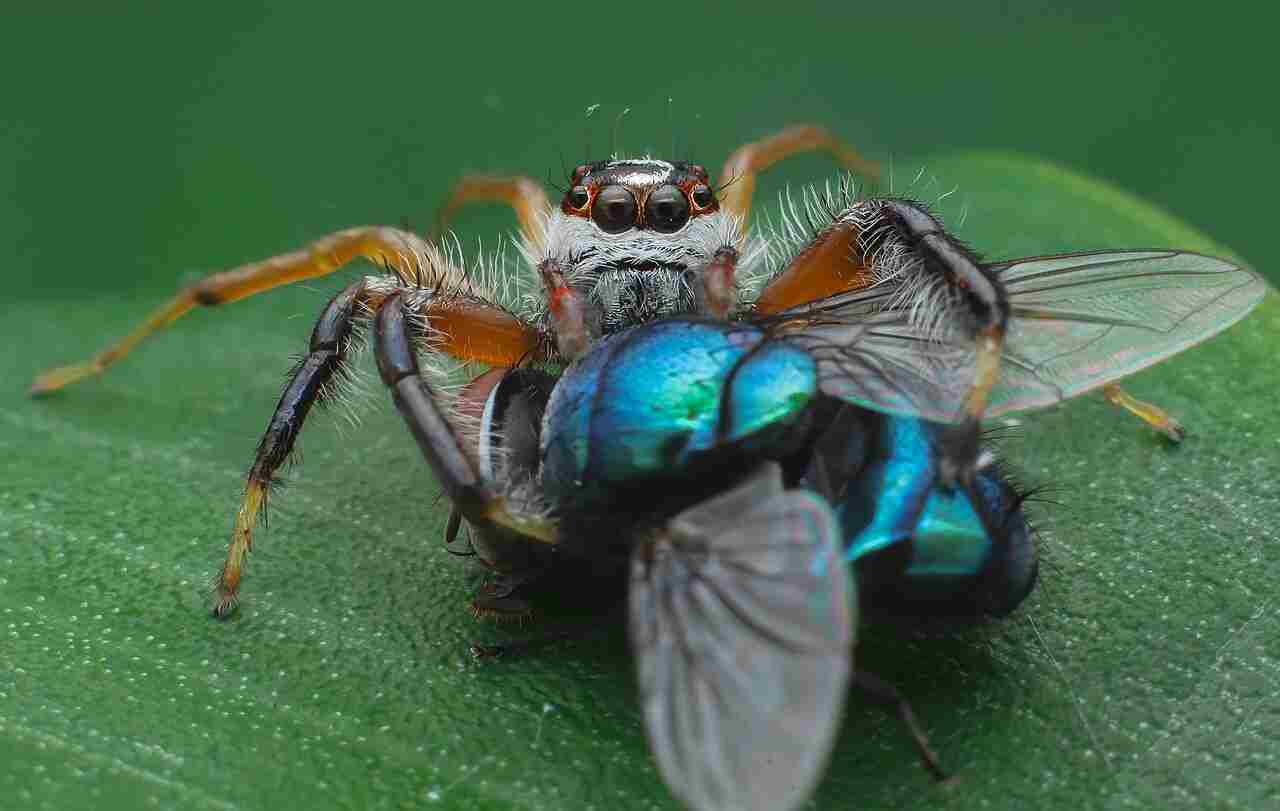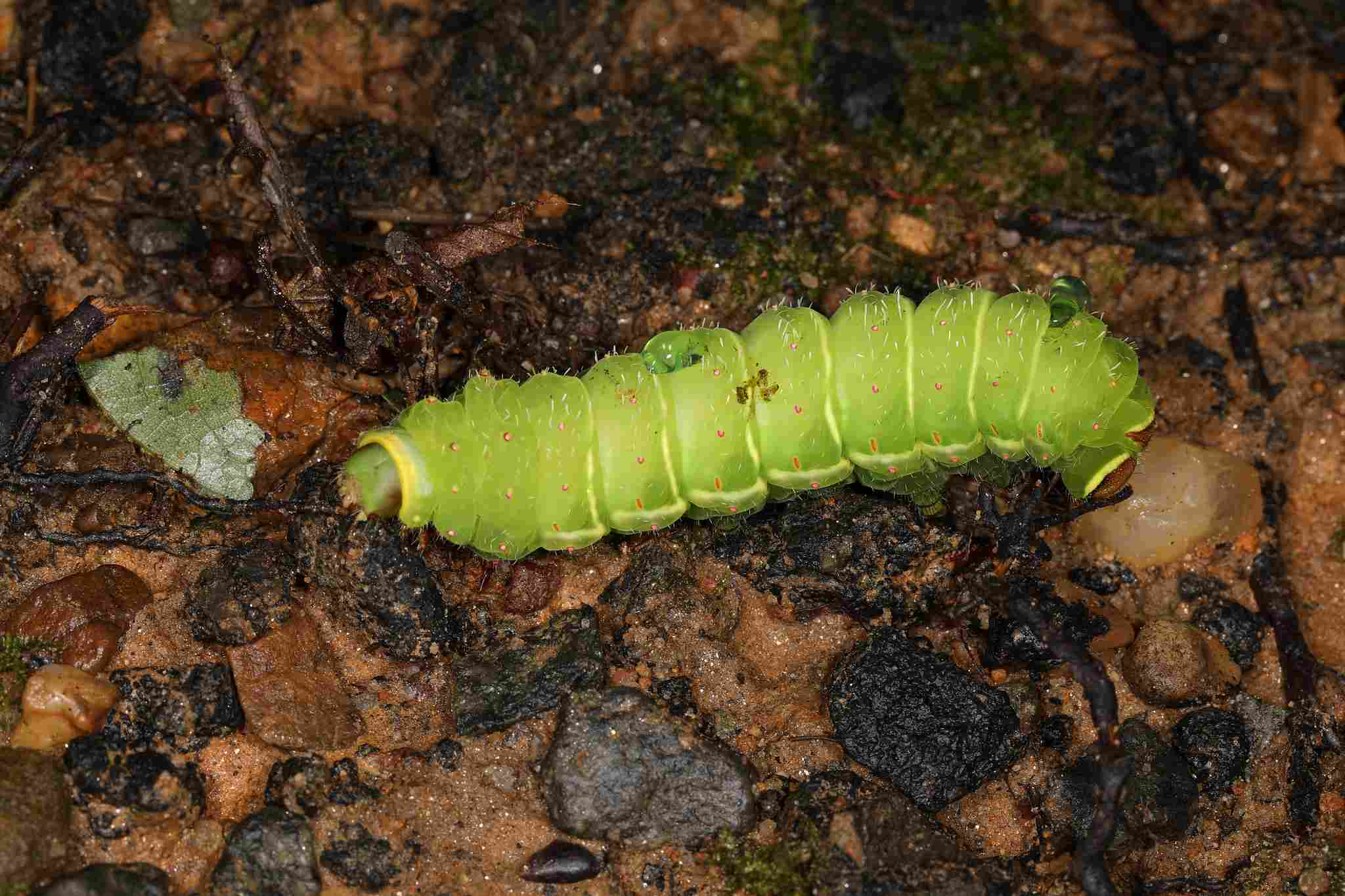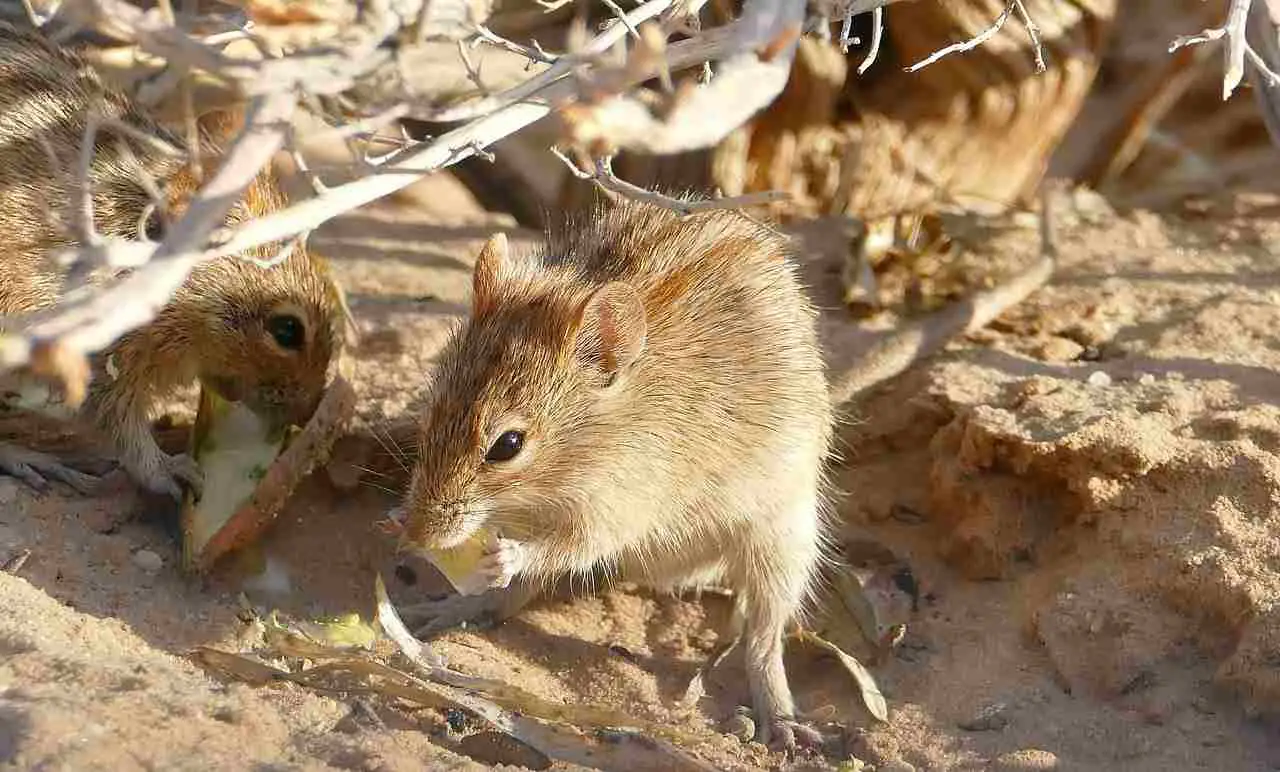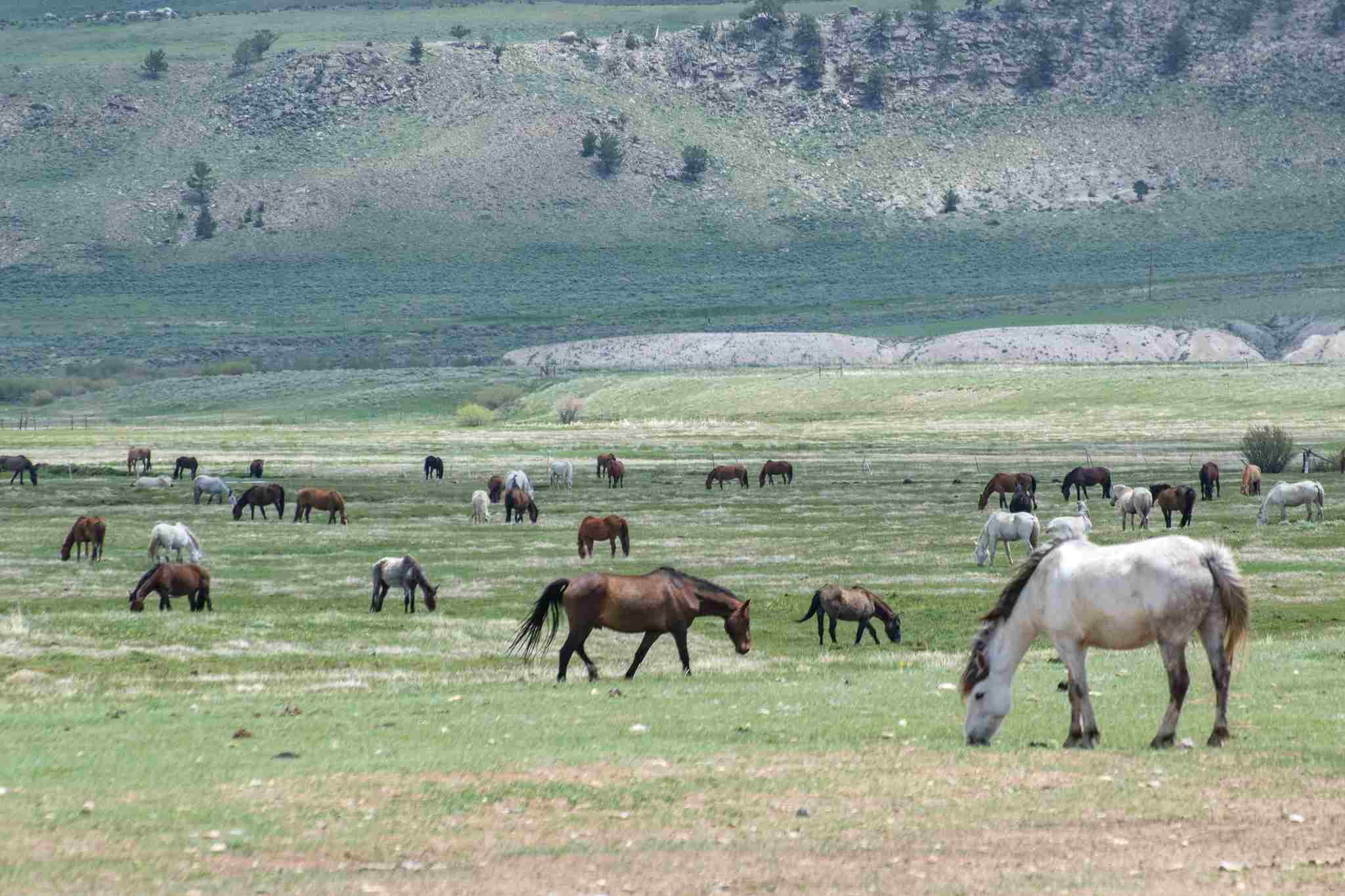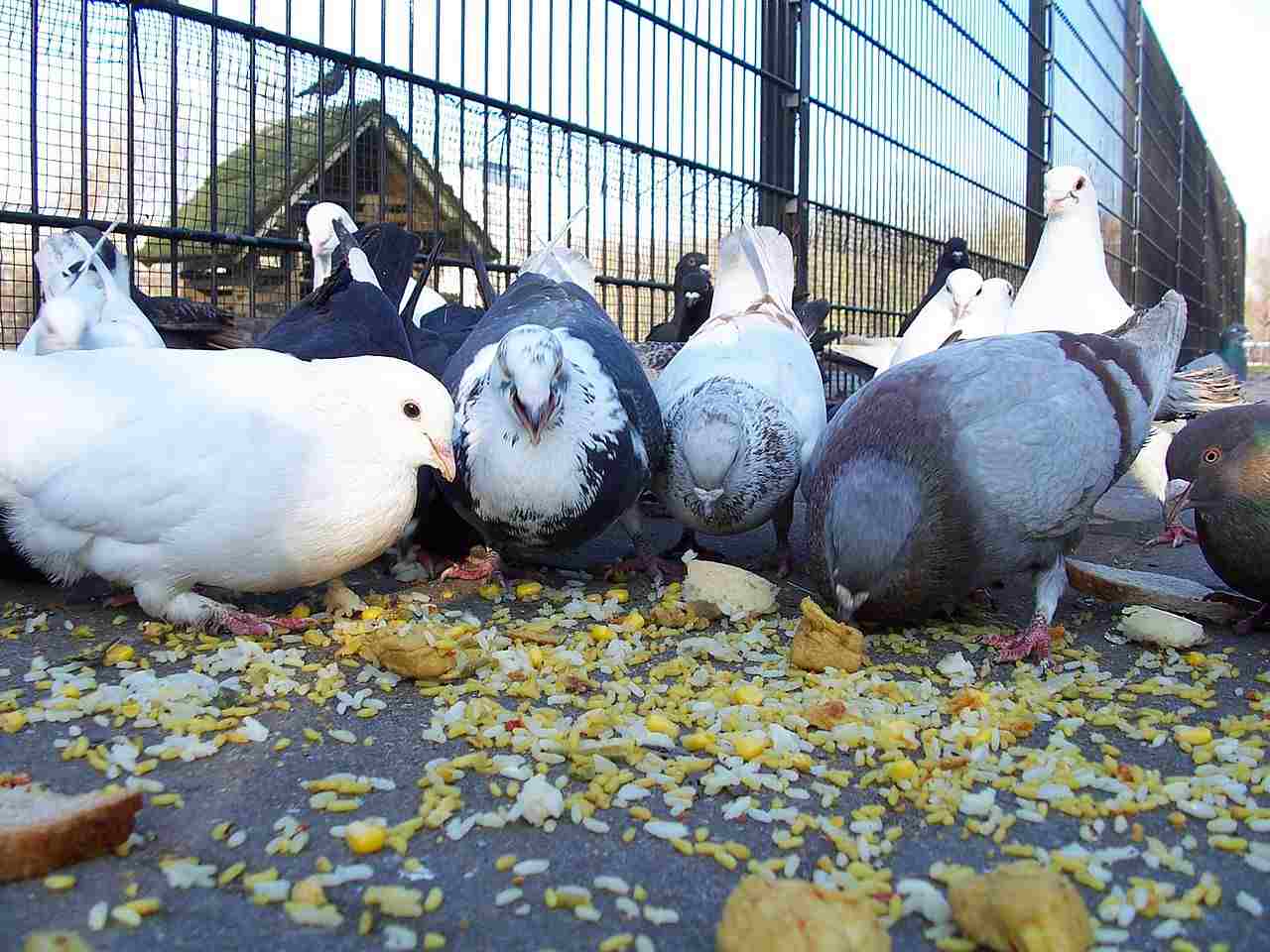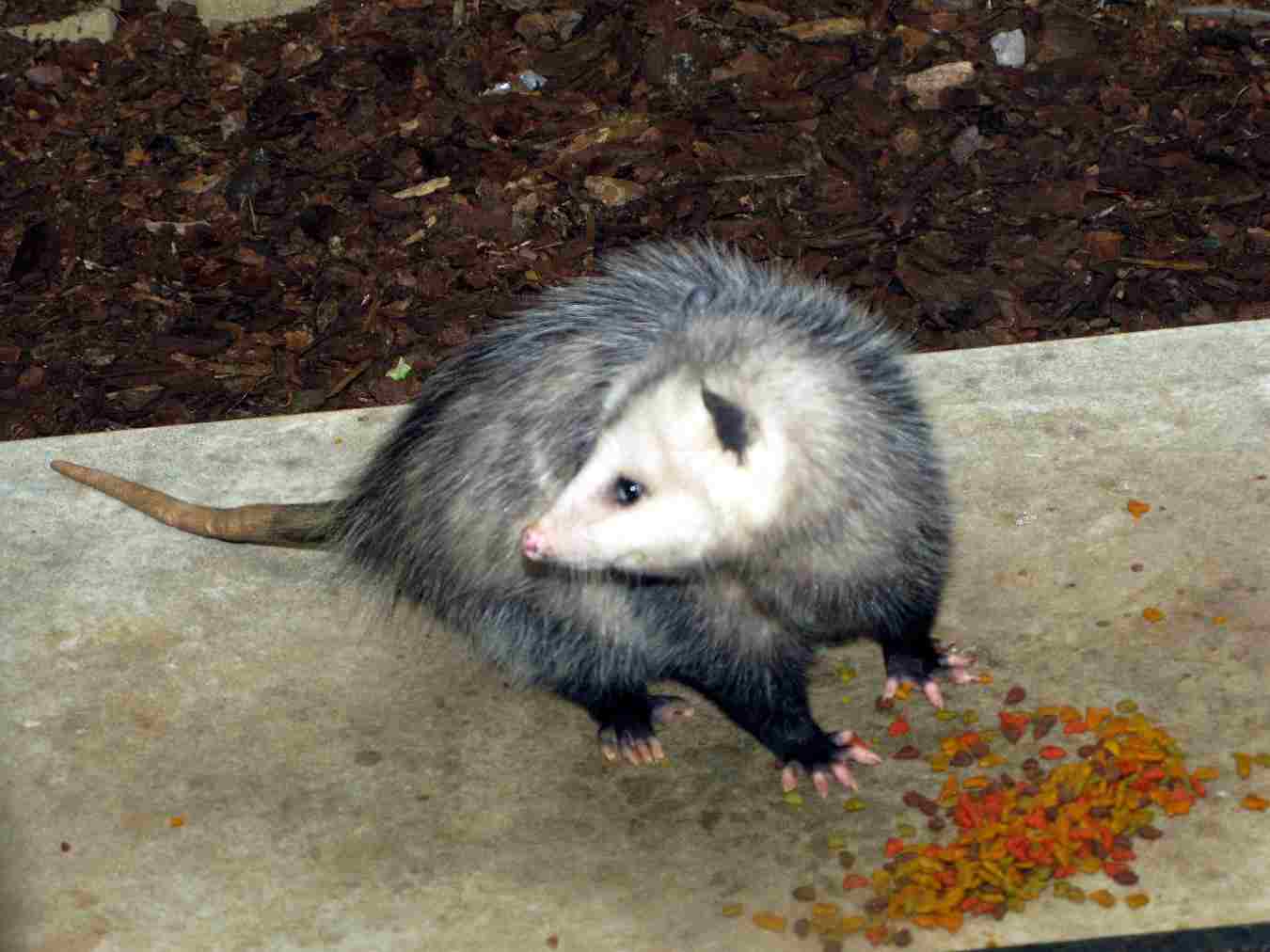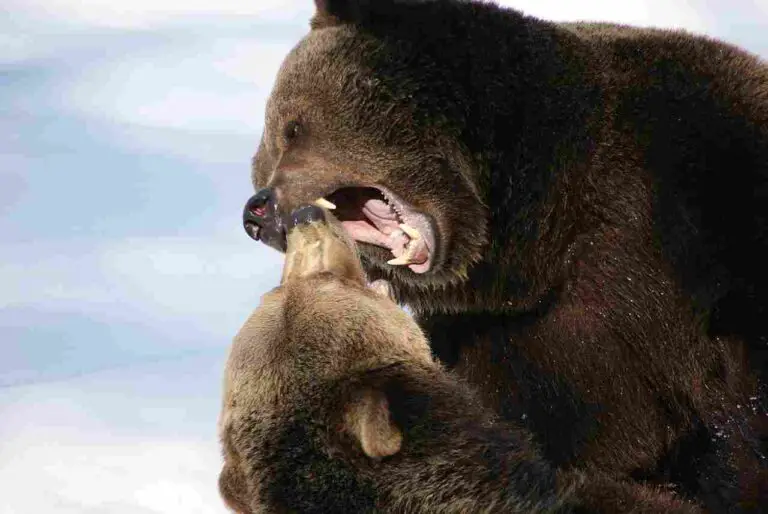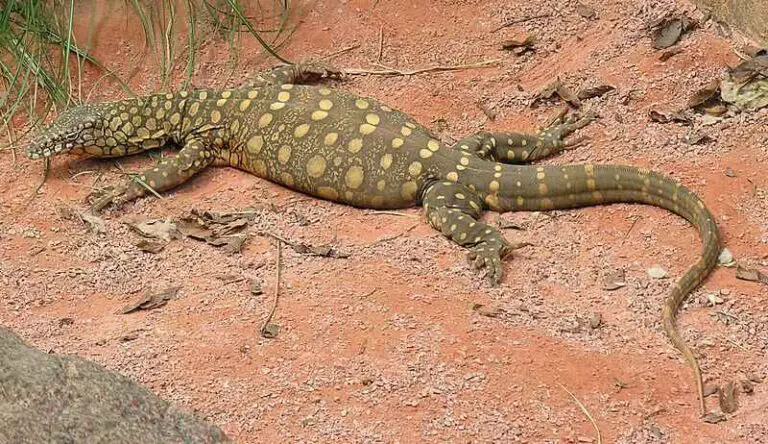Do Hornets Eat Meat? Hornet Food Chain Position and Role
Yes, hornets are carnivorous insects that primarily feed on other insects, arachnids, and various forms of animal biomass. Their diet consists mainly of protein-rich prey, making them meat-eating creatures in the natural ecosystem.
Types of ‘Meat’ Eaten by Hornets
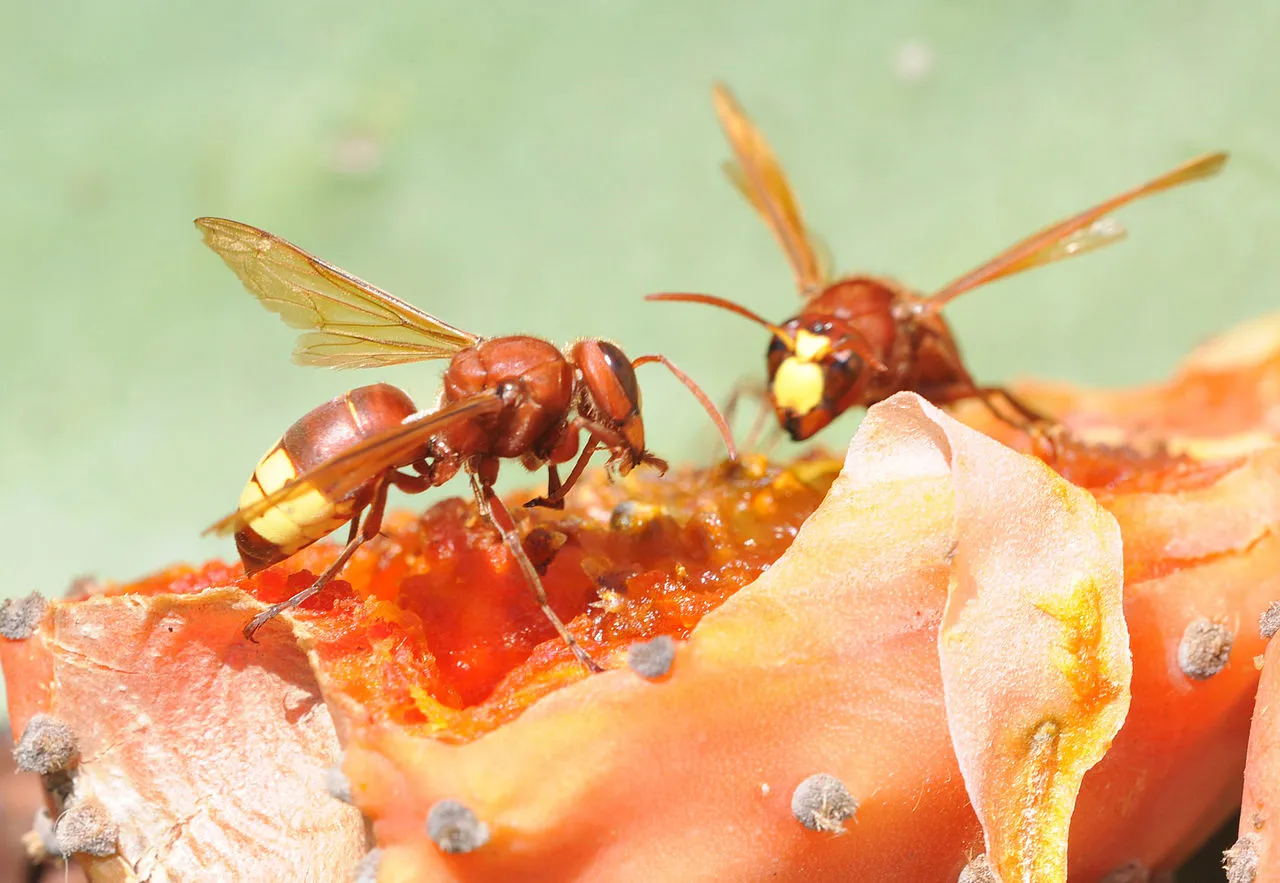
Hornets have a diverse diet that includes various types of “meat” from their prey. They commonly consume insects such as caterpillars, flies, beetles, and spiders. Additionally, they may feed on other arthropods and small animals, depending on availability and their hunting strategies.
Are Hornets Carnivores?
Yes, hornets are carnivorous insects. They primarily hunt and consume other insects, arachnids, and small animals as their main source of food. This carnivorous diet provides them with the necessary nutrients, particularly protein, to support their growth and reproduction.
Reasons Why Hornets are Carnivorous
Hornets have evolved to be carnivorous for several reasons:
-
Nutritional requirements: Hornets require a diet rich in protein for their growth, development, and reproduction. Consuming other insects and small animals provides them with essential nutrients they cannot obtain from plant-based sources alone.
-
Energy efficiency: Hunting and consuming prey is an efficient way for hornets to acquire energy. Animal biomass typically contains higher energy content compared to plant matter, allowing hornets to meet their metabolic needs more effectively.
-
Predatory adaptations: Hornets possess specialized hunting and predatory adaptations, such as strong mandibles and venomous stingers, which enable them to capture and subdue their prey effectively.
-
Ecological niche: As carnivorous predators, hornets play a crucial role in controlling populations of various insect species, helping to maintain ecological balance within their ecosystems.
In general, their carnivorous nature is a result of evolutionary adaptation to their ecological niche and provides them with the means to thrive in their natural habitats.
What Is The Best Food To Attract Hornets?
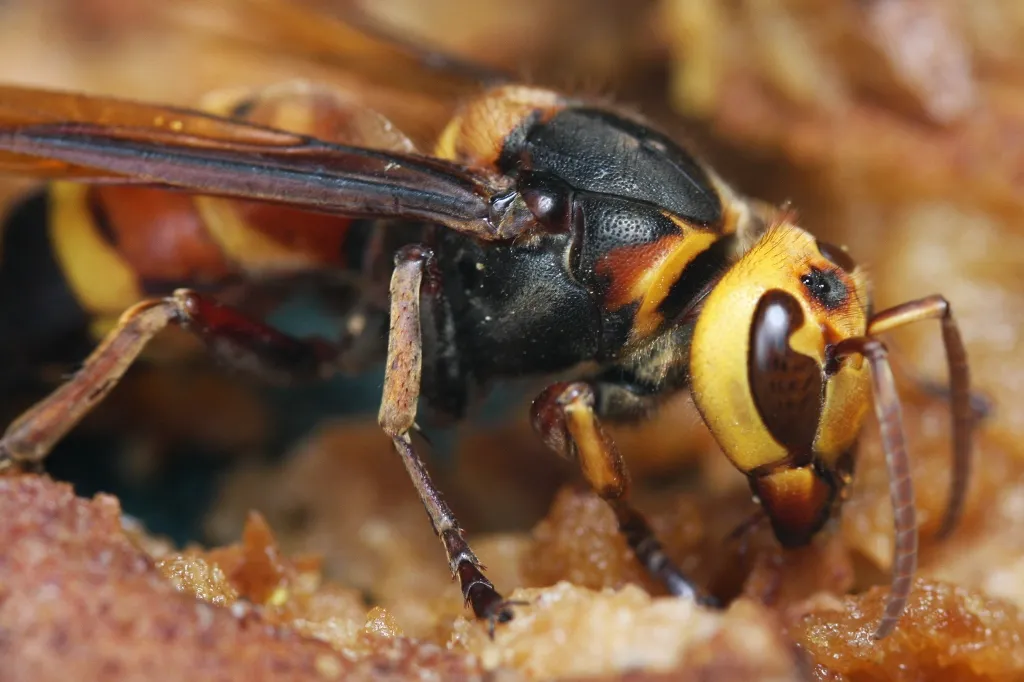
If you’re looking to attract hornets, providing a food source rich in protein is essential. Some effective options include:
-
Sweet fruits: While hornets are primarily carnivorous, they are also attracted to sweet substances. Offering ripe fruits such as peaches, apples, or grapes can help attract them.
-
Sugary liquids: Hornets are known to feed on sugary substances such as nectar. You can create a homemade attractant by mixing sugar with water or using commercial products designed to attract hornets.
-
Meat or protein-rich baits: Since hornets are carnivorous, offering meat or protein-rich baits can effectively lure them. This can include raw meat or fish placed in a suitable container.
-
Insects: Live or dead insects can also serve as an attractive food source for hornets. Providing a variety of insect species can help appeal to their hunting instincts.
By offering these types of food sources, you can increase the chances of attracting hornets to a specific area for observation or research purposes. However, it’s important to exercise caution and ensure that attracting hornets does not pose a risk to human safety or disrupt local ecosystems.
Are All Hornets Carnivores?
Yes, all hornets are carnivorous insects. They primarily feed on other insects, arachnids, and various forms of animal biomass to fulfill their nutritional requirements. This carnivorous diet is a fundamental aspect of their biology and behavior across different hornet species.
Types/Species of Hornets that are Carnivores
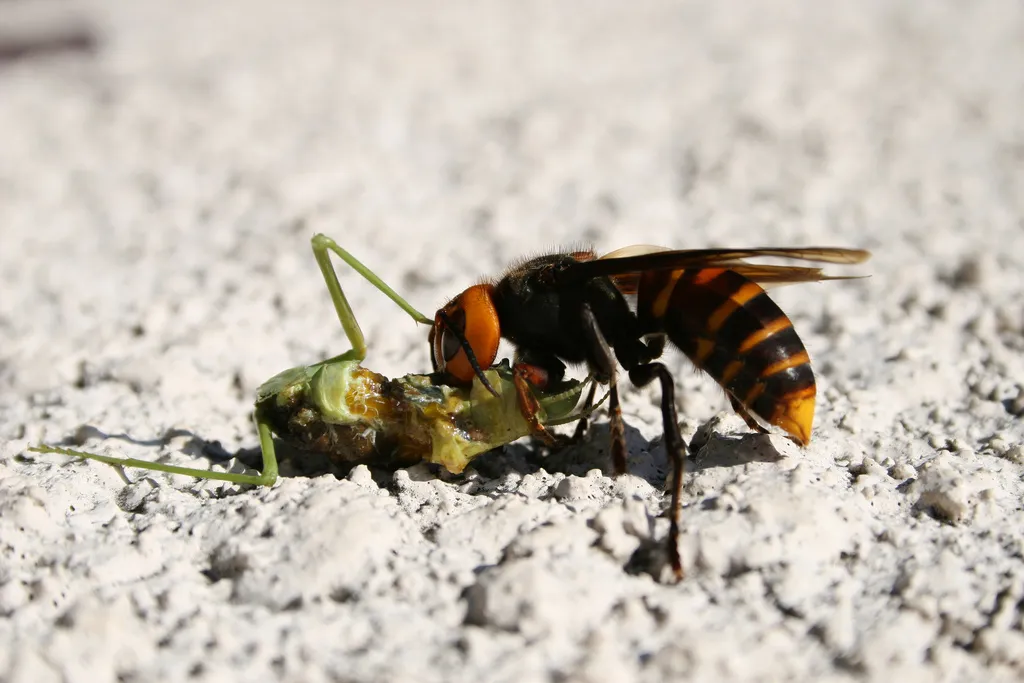
Several species of hornets are carnivorous, including:
-
European Hornet (Vespa crabro): Native to Europe and parts of Asia, the European hornet preys on a variety of insects, including caterpillars, flies, and bees.
-
Asian Giant Hornet (Vespa mandarinia): Known for its large size and potent sting, the Asian giant hornet is a formidable predator that hunts insects, including honeybees and other hornet species.
-
Bald-faced Hornet (Dolichovespula maculata): Found in North America, the bald-faced hornet primarily feeds on other insects, such as flies and caterpillars, to sustain its colony.
-
Eastern Yellowjacket (Vespula maculifrons): While technically not a true hornet, the Eastern yellowjacket is a predatory wasp species that preys on various insects and scavenges for protein-rich food sources.
These are just a few examples of hornet species that are known to exhibit carnivorous behavior as part of their natural feeding habits.
Are Hornets Aggressive?
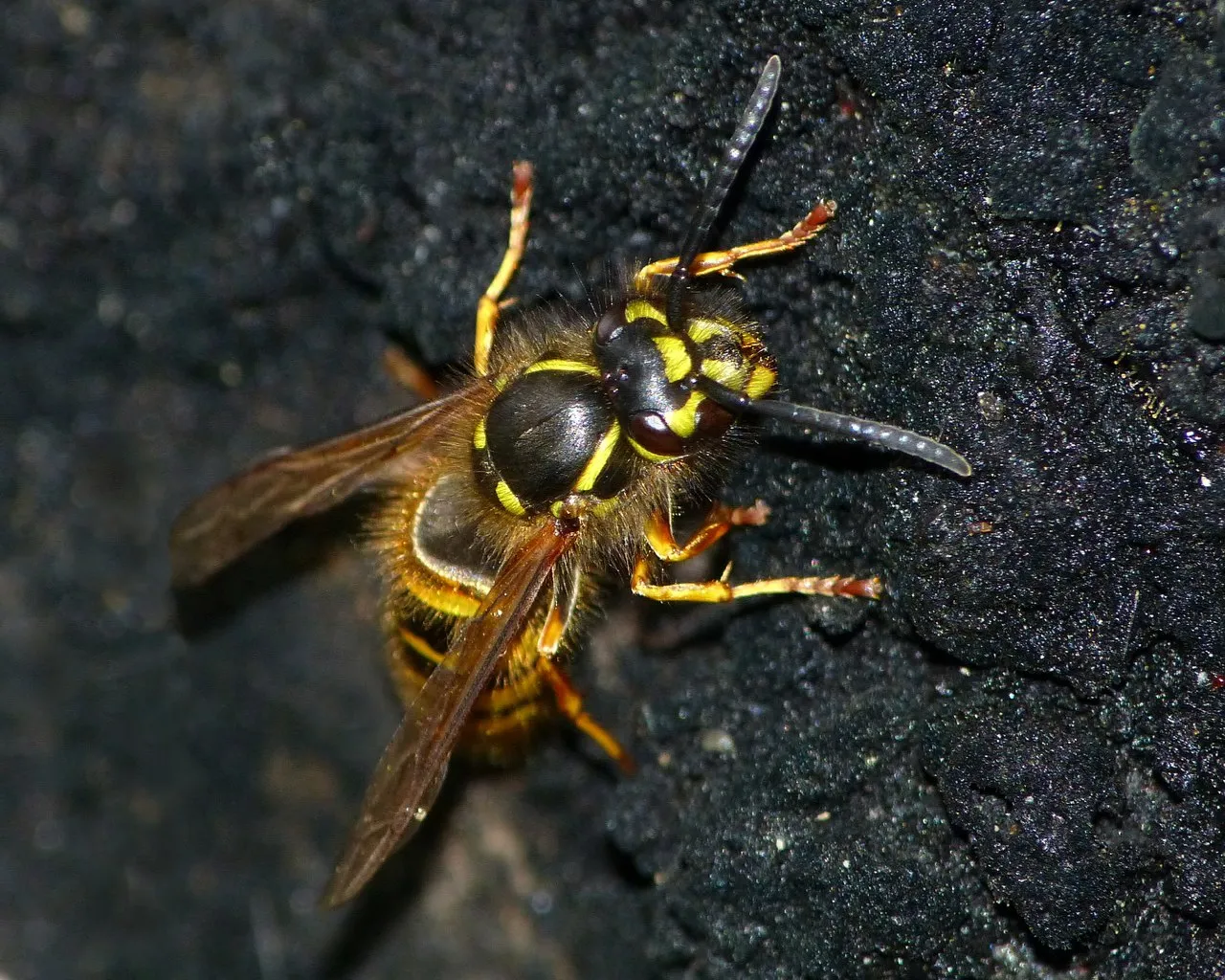
Hornets can exhibit aggressive behavior, especially when they perceive a threat to their nest or territory. However, they are generally less aggressive compared to some other wasp species. Hornets are known to defend their colonies vigorously if disturbed, and their stings can be painful due to the potent venom they inject. It’s important to exercise caution and avoid provoking hornets to minimize the risk of being stung.
Do Hornets Shoot Venom?
Hornets do not “shoot” venom in the way that some snakes or spiders do. Instead, they deliver venom through their stingers when they sting in defense or to subdue prey. The venom is injected into the victim’s body, causing pain and sometimes allergic reactions in humans. Hornets use their stingers primarily for self-defense and hunting purposes.
Do Hornets Eat Meat Or Wasps?
Hornets primarily feed on meat, including other insects, arachnids, and small animals. While they may occasionally scavenge for protein-rich food sources, their diet primarily consists of live prey. Hornets are known to prey on various insects, including wasps, if they encounter them during their foraging activities. However, they do not specifically target other wasp species as a preferred food source.
What Do Hornets Eat?
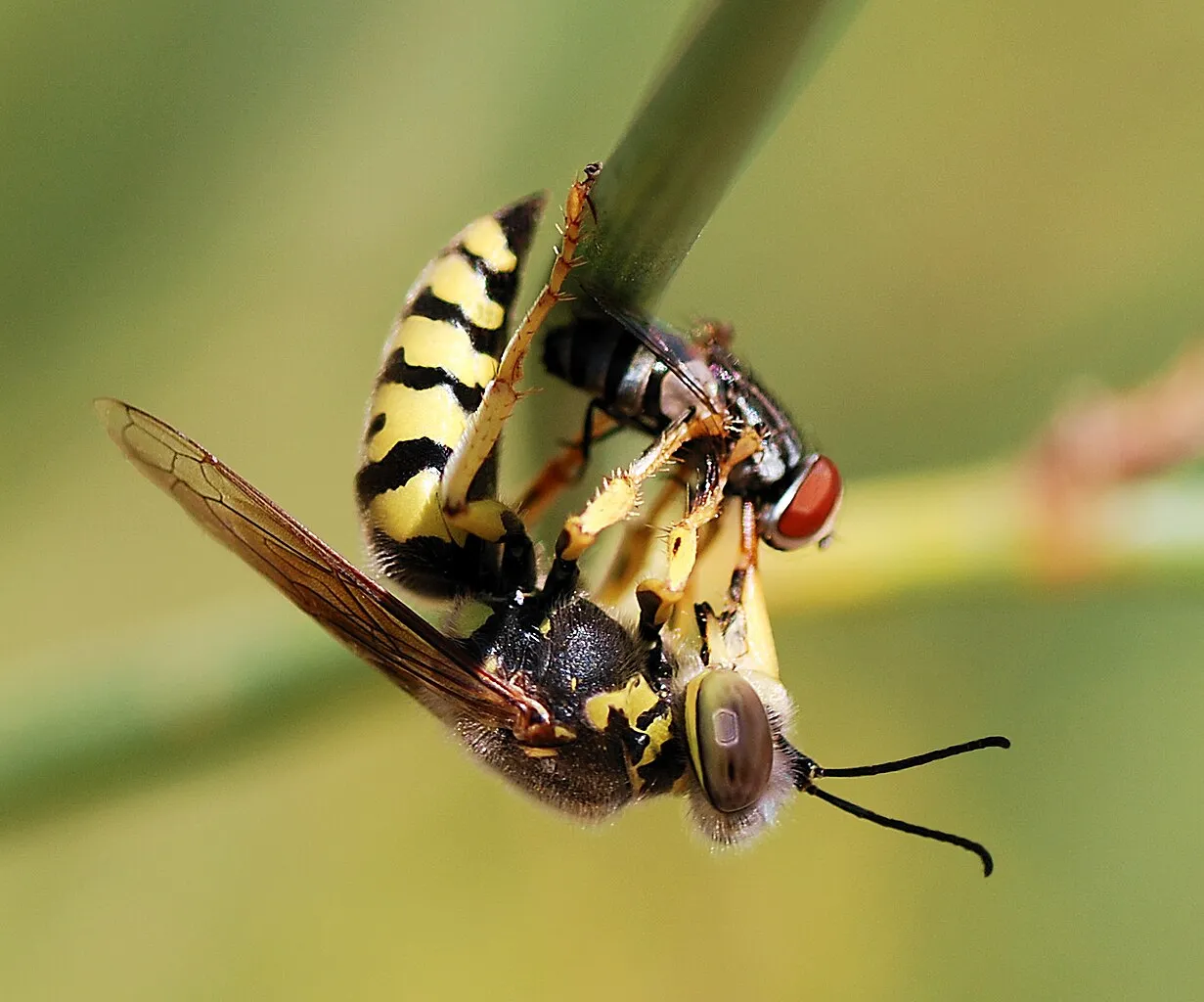
Hornets have a varied diet consisting mainly of insects, arachnids, and other small animals. Some common prey items for hornets include caterpillars, flies, beetles, spiders, and other similar creatures. They may also scavenge for protein-rich food sources and are attracted to sweet substances like nectar and ripe fruits. Overall, hornets are opportunistic feeders, consuming whatever prey or food sources are available to them in their environment.
Do Hornets Eat Ants?
Yes, hornets are known to prey on ants as part of their diet. While hornets primarily feed on a variety of insects and arachnids, ants are among the many prey items they may hunt and consume. Hornets use their strong mandibles and venomous sting to capture and subdue ants, which they then feed on for sustenance. Ants can be a significant food source for hornets, especially in areas where both species coexist.
Do Asian Hornets Eat Meat?
Yes, Asian hornets (Vespa mandarinia) are carnivorous insects and primarily feed on meat. They hunt and consume various insects, including honeybees, other hornets, and smaller prey items such as flies and caterpillars. Asian hornets are known for their predatory behavior and can pose a significant threat to bee populations, making them a concern for beekeepers and ecosystems where they are introduced.
Do Yellow Jackets Eat Meat?
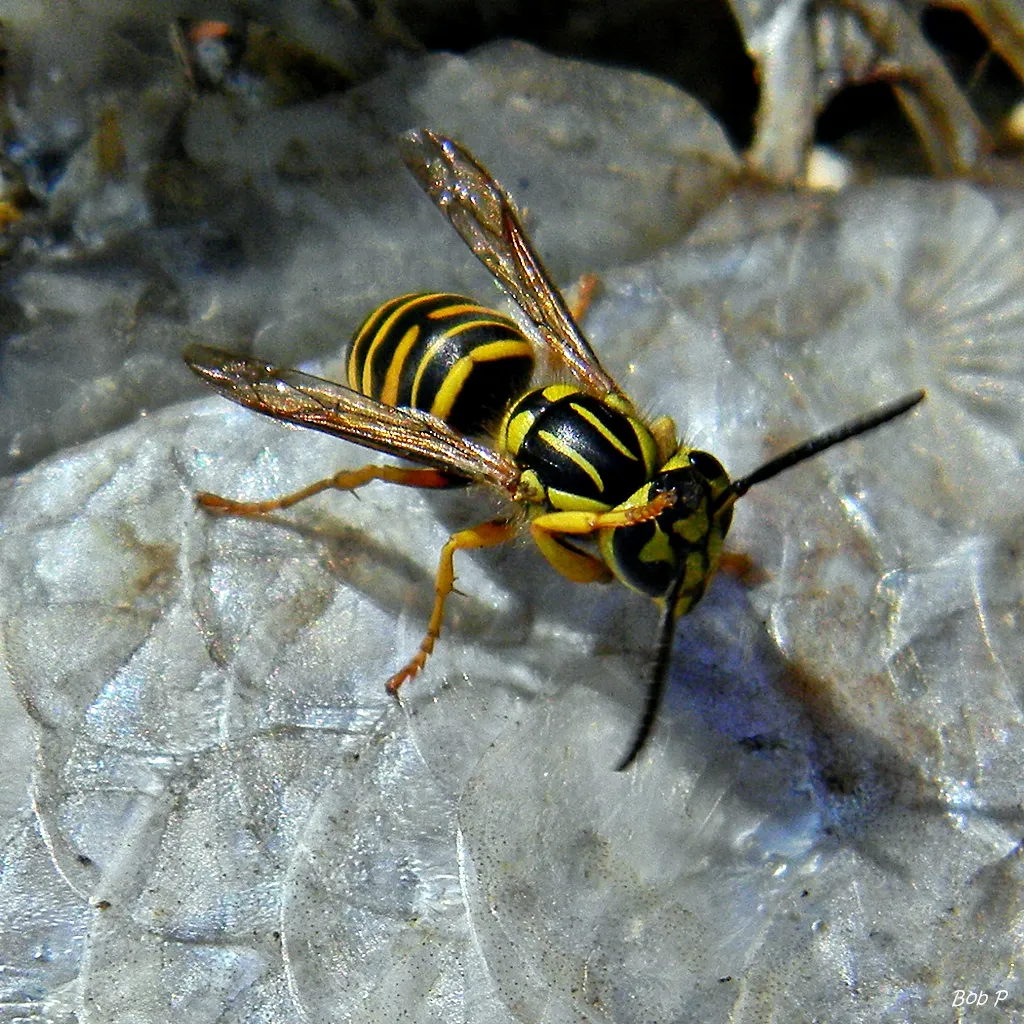
Yes, yellow jackets, including species like the Eastern yellowjacket (Vespula maculifrons), are carnivorous insects that primarily feed on meat. They hunt and consume various insects, spiders, and other small arthropods to fulfill their nutritional needs. Yellow jackets are also opportunistic scavengers and may feed on carrion, sugary substances, and human food scraps when available.
Do Hornets Eat Dead Animals?
Hornets are primarily carnivorous insects and typically prefer live prey. However, they may scavenge on dead animals if the opportunity arises. While not their preferred food source, hornets will consume carrion to obtain nutrients when live prey is scarce. Scavenging on dead animals allows hornets to utilize available protein-rich resources to meet their dietary requirements.
Do Hornets Eat Bees?
Yes, hornets are known to prey on bees as part of their diet. Hornets, including species like the Asian giant hornet (Vespa mandarinia), are formidable predators of bees. They target beehives, particularly honeybee colonies, and can decimate bee populations by hunting individual bees or raiding entire hives. Hornets use their powerful mandibles and venomous sting to capture and subdue bees, which they then consume for nutrition. This predatory behavior poses a significant threat to beekeeping and pollination efforts in areas where hornets are present.
Do Hornets Eat Mosquitoes?
While hornets primarily prey on a variety of insects, including flies, beetles, and caterpillars, they are not known to specifically target mosquitoes as a preferred food source. Hornets may consume mosquitoes opportunistically if they encounter them during their foraging activities. However, mosquitoes are not a significant part of the hornets’ diet compared to other insect species.
Do Hornets Eat Wasps?
Yes, hornets are known to prey on other wasp species as part of their diet. Hornets, being carnivorous insects, are skilled hunters and may target and consume various species of wasps when they encounter them. This includes both solitary and social wasp species. Hornets use their strong mandibles and venomous sting to capture and subdue other wasps, which they then feed on for nutrition. This predatory behavior helps hornets obtain the protein-rich food they need to sustain themselves and their colonies.
Do Hornets Sting?
Yes, hornets are equipped with a venomous sting that they use for defense and hunting. When threatened or provoked, hornets can deliver a painful sting that injects venom into the victim’s skin. Unlike bees, hornets can sting repeatedly without dying, making them formidable adversaries when defending their nests or territory. It’s important to exercise caution around hornets to avoid being stung, as their stings can cause discomfort and, in some cases, allergic reactions in humans.
What’s The Difference Between A Hornet And A Wasp?
Hornets and wasps are both members of the Vespidae family and share many similarities, but there are also key differences between the two:
-
Physical Characteristics:
-
Hornets are generally larger and thicker-bodied than most wasps.
-
Hornets typically have black and white or black and yellow markings, while wasps can exhibit a wider range of colors and patterns, including yellow, black, and orange.
-
-
Nesting Behavior:
-
Hornets usually build their nests in aerial locations, such as trees, shrubs, or human structures.
-
Wasps may build their nests in various locations, including underground, in trees, or in buildings.
-
-
Social Structure:
-
Hornets tend to have larger colonies with a hierarchical social structure, including a queen, workers, and sometimes drones.
-
Some species of wasps are solitary, while others form colonies with varying degrees of social organization.
-
-
Behavior:
-
Hornets are generally less aggressive than some species of wasps, such as yellow jackets, but they can become defensive when their nest is threatened.
-
Some species of wasps, like yellow jackets, are known for their aggressive behavior, especially around food sources.
-
Overall, while hornets and wasps share many similarities in their biology and behavior, they also have distinct differences in their physical characteristics, nesting behavior, social structure, and behavior patterns.
What Is The Difference Between A Hornet And A Bee?
Hornets and bees are both members of the order Hymenoptera and share some similarities, but they also have several key differences:
-
Physical Characteristics:
-
Hornets typically have a thicker body compared to bees.
-
Hornets have smooth and shiny bodies, while bees are generally covered in fine hair.
-
Hornets have longer and more slender antennae than bees.
-
-
Coloration:
-
Hornets often have black and white or black and yellow markings, while bees may have more diverse color patterns, including yellow, black, orange, or metallic hues.
-
-
Nesting Behavior:
-
Hornets usually build paper-like nests in aerial locations, such as trees or human structures.
-
Bees typically construct wax combs within enclosed spaces, such as hollow trees or man-made beehives.
-
-
Social Structure:
-
Hornets typically have larger colonies with a hierarchical social structure, including a queen, workers, and sometimes drones.
-
Bees also form colonies but often have a more complex social structure, with distinct roles for worker bees, drones, and a single queen.
-
-
Behavior:
-
Hornets are carnivorous predators that primarily hunt other insects, while bees are herbivores that collect pollen and nectar from flowers.
-
Hornets are generally less docile than bees and may exhibit defensive behavior when their nest is threatened.
-
*Key Takeaways
| Aspect | Hornets | Wasps | Bees |
| Physical Characteristics | Thicker body, black and white or black and yellow markings | Various sizes and colors, smooth bodies |
Covered in fine hair, diverse colors
|
| Nesting Behavior | Build paper-like nests in aerial locations | Nest in various locations |
Construct wax combs in enclosed spaces
|
| Social Structure | Hierarchical colonies with queen, workers, and sometimes drones | Can be solitary or form smaller colonies |
Complex hierarchy with distinct roles
|
| Predatory Behavior | Carnivorous, hunt other insects | Carnivorous, hunt other insects |
Herbivores, collect pollen and nectar
|
| Aggressiveness | Less aggressive but defensive when threatened | Some species are highly aggressive |
Generally docile but may sting when provoked
|
*FAQs
- What should I do if I encounter a hornet’s nest near my home?
- If you come across a hornet’s nest near your home, it’s best to avoid disturbing it. Contact a professional pest control service to safely remove the nest and mitigate the risk of stings.
- Are hornets beneficial to the environment?
- Yes, hornets play a crucial role in controlling populations of various insect species, which helps maintain ecological balance within their ecosystems. However, they can also pose a threat to humans and bee populations, particularly invasive species like the Asian giant hornet.
- How can I prevent hornets from nesting in my yard?
- To deter hornets from nesting in your yard, keep outdoor areas clean and free of food debris, regularly inspect your property for potential nest sites, and seal any openings or cracks where hornets might enter. Additionally, consider using decoy nests or commercially available repellents as a preventive measure.
- What should I do if I get stung by a hornet?
- If you get stung by a hornet, wash the affected area with soap and water, apply a cold compress to reduce swelling, and take over-the-counter pain relievers if needed. Seek medical attention if you experience severe allergic reactions or multiple stings.
-
Can hornets damage property?
- Hornets can potentially damage property if they build nests in or near structures. Their nesting activities may cause structural damage, and their presence can be a nuisance to homeowners. Prompt removal of hornet nests can help prevent property damage and reduce the risk of stings.
